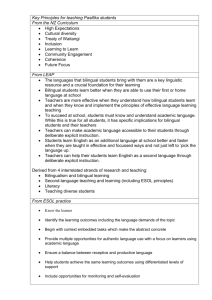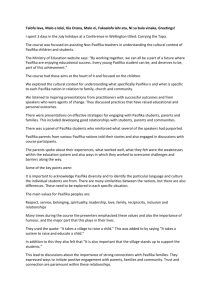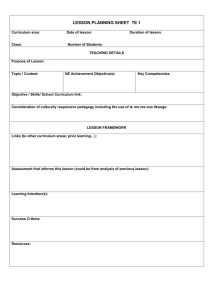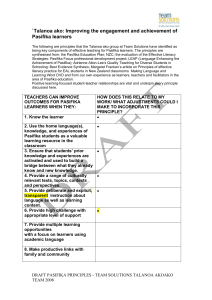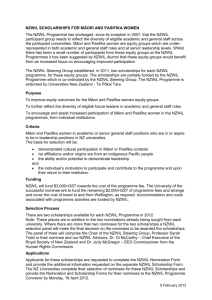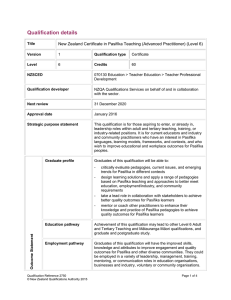Keynote Address by Roberta Hunter
advertisement
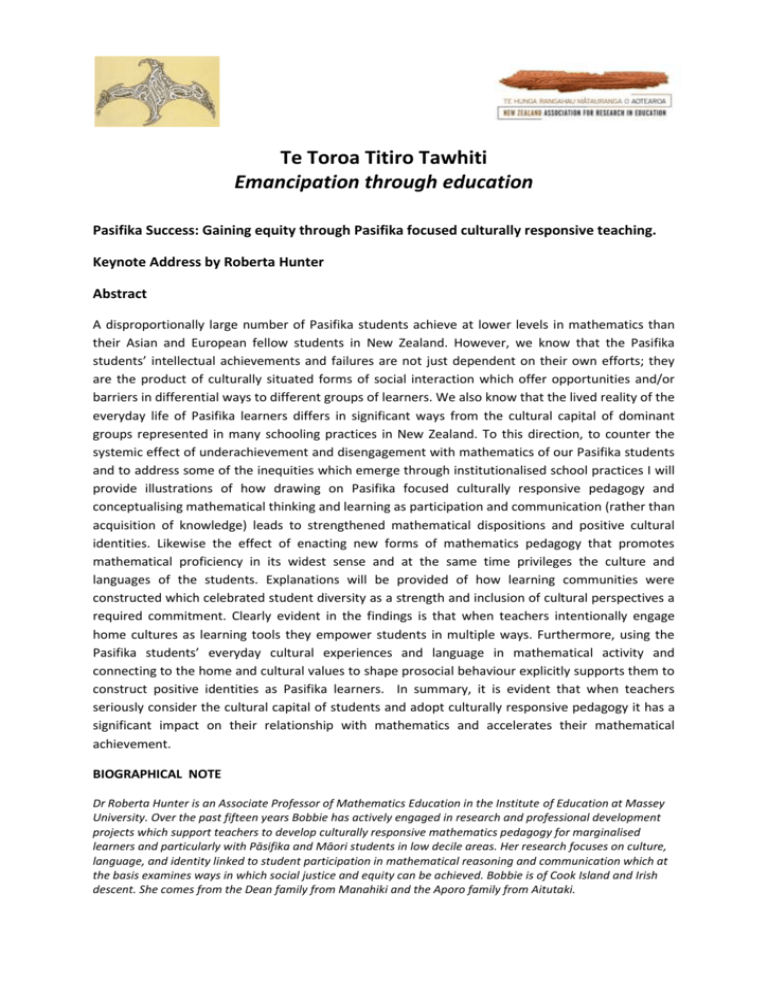
Te Toroa Titiro Tawhiti Emancipation through education Pasifika Success: Gaining equity through Pasifika focused culturally responsive teaching. Keynote Address by Roberta Hunter Abstract A disproportionally large number of Pasifika students achieve at lower levels in mathematics than their Asian and European fellow students in New Zealand. However, we know that the Pasifika students’ intellectual achievements and failures are not just dependent on their own efforts; they are the product of culturally situated forms of social interaction which offer opportunities and/or barriers in differential ways to different groups of learners. We also know that the lived reality of the everyday life of Pasifika learners differs in significant ways from the cultural capital of dominant groups represented in many schooling practices in New Zealand. To this direction, to counter the systemic effect of underachievement and disengagement with mathematics of our Pasifika students and to address some of the inequities which emerge through institutionalised school practices I will provide illustrations of how drawing on Pasifika focused culturally responsive pedagogy and conceptualising mathematical thinking and learning as participation and communication (rather than acquisition of knowledge) leads to strengthened mathematical dispositions and positive cultural identities. Likewise the effect of enacting new forms of mathematics pedagogy that promotes mathematical proficiency in its widest sense and at the same time privileges the culture and languages of the students. Explanations will be provided of how learning communities were constructed which celebrated student diversity as a strength and inclusion of cultural perspectives a required commitment. Clearly evident in the findings is that when teachers intentionally engage home cultures as learning tools they empower students in multiple ways. Furthermore, using the Pasifika students’ everyday cultural experiences and language in mathematical activity and connecting to the home and cultural values to shape prosocial behaviour explicitly supports them to construct positive identities as Pasifika learners. In summary, it is evident that when teachers seriously consider the cultural capital of students and adopt culturally responsive pedagogy it has a significant impact on their relationship with mathematics and accelerates their mathematical achievement. BIOGRAPHICAL NOTE Dr Roberta Hunter is an Associate Professor of Mathematics Education in the Institute of Education at Massey University. Over the past fifteen years Bobbie has actively engaged in research and professional development projects which support teachers to develop culturally responsive mathematics pedagogy for marginalised learners and particularly with Pāsifika and Māori students in low decile areas. Her research focuses on culture, language, and identity linked to student participation in mathematical reasoning and communication which at the basis examines ways in which social justice and equity can be achieved. Bobbie is of Cook Island and Irish descent. She comes from the Dean family from Manahiki and the Aporo family from Aitutaki.
